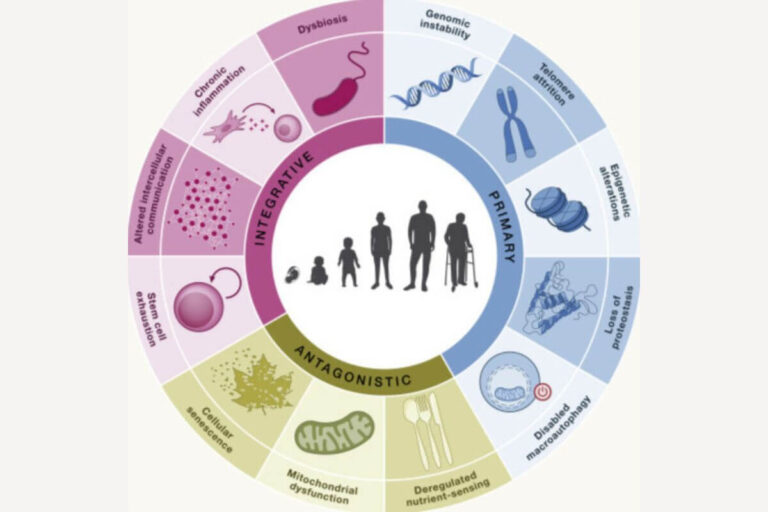Metformin, a drug primarily used to treat type 2 diabetes, has recently gained significant attention for its potential effects on longevity (long life) and aging. Originally developed in the 1950s, it has become the subject of intense research exploring whether it could help extend lifespan and prevent age-related diseases. But what do we really know about the effects of metformin on aging?
What is Metformin and How Does It Work?
Metformin is a medication that works by reducing blood glucose (sugar) levels. It does this by improving the body’s sensitivity to insulin and decreasing the liver’s production of glucose. In addition to helping people with diabetes control their blood sugar, researchers have discovered that metformin impacts several mechanisms linked to aging, including inflammation, cellular stress, and energy metabolism.
One of the most interesting aspects of metformin is its effect on a process called AMPK (AMP-activated protein kinase). AMPK acts as the body’s “energy monitor,” and it gets activated when cells experience low energy. By activating AMPK, metformin is believed to help improve cellular energy metabolism, which may reduce the risk of age-related diseases and extend lifespan at the cellular level.
Studies and Research
In recent years, several large studies have investigated the potential impact of metformin on longevity. One of the most well-known is the TAME study (Targeting Aging with Metformin), which began in 2020 and is investigating whether metformin can prevent age-related diseases and extend life in older adults. This study is particularly interesting because it is one of the first to directly address whether metformin can affect the aging process in healthy individuals, rather than just those with diabetes. More information about the TAME study can be found on ClinicalTrials.gov.
Previous research has also shown that people taking metformin tend to have a lower risk of age-related diseases like cancer, cardiovascular disease, and neurodegenerative diseases, although the results are not entirely conclusive. A study published in Cell Metabolism showed that metformin extended lifespan in mice, and there are signs that it may have similar effects in humans. You can read the study on Cell Metabolism’s website. Another study published in Lancet Diabetes & Endocrinology found that older adults with type 2 diabetes who took metformin had a longer expected lifespan than those who didn’t. More details are available in the article published in Lancet Diabetes & Endocrinology.
Benefits of Metformin for Longevity
- Reduced Risk of Age-Related Diseases: Studies show that metformin may lower the risk of cancer, cardiovascular disease, and neurodegenerative diseases.
- Improved Insulin Sensitivity and Metabolism: By improving the body’s handling of glucose and insulin, metformin can contribute to better metabolism and counteract metabolic syndrome.
- Lower Inflammation Levels: Metformin has demonstrated anti-inflammatory effects, which is a key aspect of aging and many chronic diseases.
- Possible Cellular Renewal: By activating AMPK, metformin may enhance cellular energy metabolism and the ability of cells to repair themselves.
Drawbacks and Risks
Despite the promising results, there are also drawbacks and potential risks to using metformin as an anti-aging medication:
- Side Effects: Common side effects of metformin include gastrointestinal issues like diarrhea and nausea. In some people, it can also cause vitamin B12 deficiency.
- Long-Term Effects: Since most studies on metformin and aging have not yet been conducted long enough, it’s uncertain whether there are long-term risks or unintended effects from prolonged use.
- Lack of Conclusive Evidence: Despite promising results, it is still unclear whether metformin can actually extend lifespan in healthy individuals. More research is needed to confirm these effects.
The Future of Metformin and Longevity
While we are still in the early stages of research on metformin and its effects on aging, much suggests that the drug could play a role in improving health in older adults and preventing certain age-related diseases. The TAME study and other ongoing projects will hopefully give us more insights into how metformin may function as an agent for longevity.
Metformin could very well be one of the most promising drugs for counteracting aging and extending lifespan. Research is still ongoing, and while we don’t have all the answers yet, there are good reasons to keep an eye on its development. For now, it’s best to stick to proven methods for promoting a long life, such as healthy eating, regular exercise, and stress management — but metformin may very well become part of future anti-aging research.



